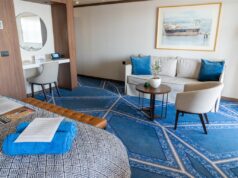- Athens International Airport becomes the first carbon neutral airport in Greece
- Over 20 million passengers passed through the airport in 2016
- There are now 25 carbon neutral airports in Europe, 2 in Asia and 1 in North America
- 180 airports are now Airport Carbon Accredited, welcoming 37.3% of global passenger traffic
At the COP21 climate negotiations in Paris in December 2015, the airport industry committed to have 50 carbon neutral airports in Europe by 2030. Today we announce the latest airport to reach that goal: Athens International Airport which has achieved carbon neutral status (Level 3+), certified by the independent carbon management programme Airport Carbon Accreditation.
Niclas Svenningsen, who heads the Climate Neutral Now initiative at the United Nations Framework Convention on Climate Change (UNFCCC) Secretariat in Bonn, Germany commented «The news that Athens International Airport has become carbon neutral through Airport Carbon Accreditation is a great way to kick off 2017. The ambitious efforts of a growing number of carbon neutral airports are testament to how seriously this industry is working on addressing its direct impact on climate change. With 25 European airports now carbon neutral, the airport industry is already halfway towards meeting its pledge at COP21. We look forward to more progress in the year ahead.»
This brings the total number of carbon neutral airports around the world to 28 – a movement that began when Swedavia’s Stockholm-Arlanda airport achieved certification as the first carbon neutral airport in the world in November 2009. Across the 4 available levels of the Airport Carbon Accreditation programme, there are currently a total of 180 airports, working to address their CO2 emissions. These airports welcome 37.3% of global passenger traffic.
Since its opening in 2001, Athens International Airport has had an ardent and ever-evolving environmental agenda. Among other things, it was one of the first airports to invest in solar technology, building a €20 million photovoltaic park on the airport site, as a source of clean, sustainable power. It was also among the early adopters who became accredited in the very first year of the Airport Carbon Accreditation programme (2009), renewing and successfully upgrading its certification over the intervening years.
Reacting to the news, Olivier Jankovec, Director General, ACI EUROPE commented « I am delighted for Athens International Airport (AIA). Since its inception, AIA has been an ambitious and worthy addition to the European airport network – one that is always looking to innovate and push the boundaries of excellence in all aspects of airport management & efficiency. In that spirit, it was one of the earliest advocates of the need for a carbon standard for the airport industry and has been an active participant in the Airport Carbon Accreditation from the very outset. So my heartfelt congratulations to all the team at AIA on their achievement of becoming carbon neutral – another of their ambitions realised! »
Dr Yiannis Paraschis, CEO of Athens International Airport commented « By achieving carbon neutrality, Athens International Airport continues to tangibly demonstrate its commitment to the fight against climate change. We are proud to be among leading airports, not only as a major economic engine, but also through our reduced ecological footprint thanks to the environmental awareness and complementary efforts of our colleagues and partners across the airport community.
Athens airport managed to drastically reduce its carbon footprint, from 2005 through 2015, following a years-long effort to diminish energy consumption in its installations, through a number of interventions and investments in more efficient equipment among other actions. Additionally, Athens International Airport continues to plan additional energy and fuel saving measures, such as the certification of our energy management system as per ISO 50001, the continued modernisation of airport equipment, and the optimisation of operation of our energy systems. »












